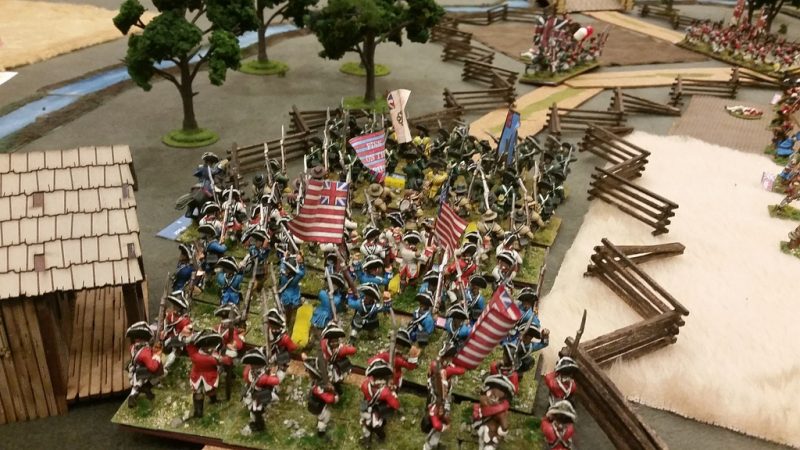The Chicago-area chapter of the Historical Miniatures Gaming Society hosts the Little Wars convention.
In these games, there are no screens and no computer-generated bloodshed. Rather, one-inch tall soldiers of metal or plastic are strategically placed on elaborate tabletop milieus.
Many of the miniatures are meticulously painted to represent armies of battles in the past – Troy, the Alamo, the Confederacy, or World War II Europe.
There are 25,000 members of the society. Some members are ex-military, others are history buffs. They all share a sense of camaraderie and pride.
“We’re not the geeks in their mothers’ basements,” said Kevin Cabai, the membership vice president of the society’s Midwest chapter. “It’s a different aspect than what people think of when they hear gamers.”
“We are trying to bring new blood into the hobby,” said local chapter president Steve Fratt, who is a history professor at Trinity College in Deerfield, IL. “As a historian, I want kids to learn history.”
The actual games are a small part of the hobby. It’s not uncommon to put 10 hours of preparation into every hour of play. The time is spent shopping for materials, creating the game boards, and painting the figures. Some members state that they spend thousands of dollars a year on the hobby.
There is also historical research. Cabai said that the gamers will study every detail of a battle down to the specific stripes on a soldier’s uniform. “In some form or fashion, I do this every day,” Cabai said.
At Little Wars, most of the games were based on real, historical battles with precise and complicated rules. There is also a fantasy group that bases their battles on The Lord of the Rings and Star Wars among other science fiction and fantasy worlds.
Soldiers are carefully positioned around the boards. Some lie on their sides to represent the dead and wounded. Rulers and tape measures are used to find how far a cannon could shoot.
A game master, or judge, oversees each game. The games are not just about playing. Learning is equally important.
“People say they don’t need to know history … but the benefit of history is to understand the human condition. You gain wisdom by understanding the past, not just memorizing facts,” said Fratt. He uses historical miniature gaming in his classroom.
Fratt ran a game during the convention for younger players. It was based on the Battle of the Alamo in 1836.
Another major benefit of this type of gaming is “human interaction with another real, live human being,” Fratt said. “It promotes social skills. It promotes camaraderie, instead of … playing Xbox or competing online with people. It’s the joy of creating real human relationships.”
